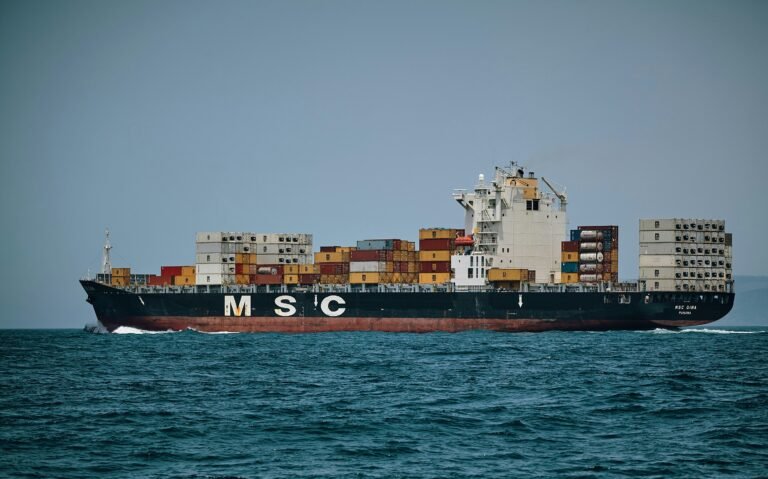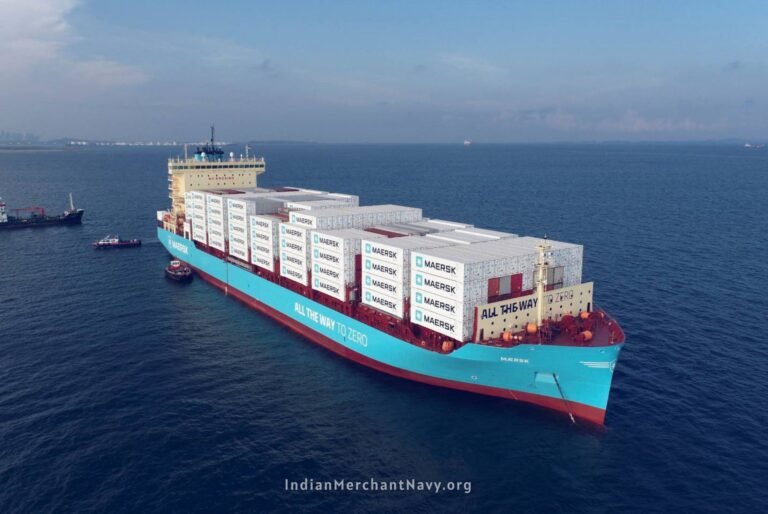What Are Different Ranks In Merchant Navy?
A career in the merchant navy can be rewarding in terms of salary and the opportunity to explore the world. There are several positions you can choose on a commercial ship, depending on your qualification and experience. Before you pursue a career in the merchant navy, you may want to know about the hierarchy of ranks. In this article, we outline the officer ranks in merchant navy and discuss the duties of each position.
Hierarchy of officer ranks in merchant navy
Navigating the rough seas is challenging and having an established ranking order helps the crew members do their tasks efficiently by following instructions from their superiors. The merchant navy follows a strict hierarchy of ranks to establish a chain of command among its officers and crew. This ranking system plays a crucial role in ensuring smooth coordination among the crew for various onboard operations. The nomenclature of ranks in the merchant navy are universally accepted and all commercial vessels and shipping companies follow the same ranking order.
List of crew members on a commercial ship
The crew members onboard a commercial liner are divided into three categories:
Officers
Officers are the top-level posts in the merchant navy. They work across three central departments of the ship. All officers begin their career as a junior cadre in their chosen department and move up the ranks based on their performance, qualification and seniority.
Ratings
“Ratings” is a general term referring to skilled seamen who assist officers in all three departments. They are responsible for carrying out various tasks that ensure the safe operation and maintenance of the ship. All ratings are trained in sea survival and fire prevention skills.
Support staff
Support staff assist officers and ratings in dispensing the various duties onboard. They are mainly in charge of housekeeping, catering and miscellaneous cleaning jobs. The number of support staff depends on the size and type of merchant liner.
Classification of merchant navy ranks
The ranks of officers in the merchant navy is classified under three categories:
- The deck department: The officers on the deck handle the navigation, communications, cargo, crew, and overall operations. They are also responsible for looking after the safety of passengers.
- The engine department: The officers and seafarers working in the engine room of the ship belong to the engine department. They are responsible for the maintenance and operation of the ship’s crucial machinery.
- The catering department: The catering department is the final department in a merchant ship, and it oversees the preparation of meals for passengers and crew. It is also responsible for the general housekeeping of the vessel.
Merchant navy officers in the deck department
The officers in the deck department include:
Captain
The sea captain, also known as the master, is the highest rank in the merchant navy. The captain of a commercial ocean liner is the final authority of the ship. They are responsible for all the operations onboard. They are also in command of the vessel at all times and oversees the regular daily activities on board. The captain is also in charge of handling the legal affairs of the ship if any maritime dispute arises. If the sea captain is not onboard or is unavailable, the chief officer takes interim charge of ship operations.
Chief officer
The chief officer, also known as the first mate, is in charge of the operations of the deck department and reports directly to the captain. They are also the Ship Security Officer (SSO) and is responsible for the safety of the passengers and crew. As the Officer on Watch (OOW) during the navigation hours of 0400-0800 and 1600-2000, this person is in charge of the ship’s hull and lifesaving and firefighting appliances.
Second officer
The second officer, also known as second mate, holds a Second Mates Certificate of Competency and is responsible for the navigation, satellite, computer and radar systems. They monitor the vessel’s position, direction, speed and weather reports. The second officer is also entrusted with the safety and maintenance of all medical devices and services onboard.
Third officer
The third officer, also known as the third mate, is the fourth-in-command on the ship and is responsible for maintaining all lifesaving and firefighting appliances. They also handle port documents and is in charge of storing those documents safely. The third officer is the officer on watch during 0800-1200 hours and 2000-0000 hours while the ship is at sea.
Deck cadet
If you are interested in a career as an officer in the deck department, you have to start as a deck cadet. To become a deck cadet in the merchant navy, you require a BSc in nautical science or an engineering degree or diploma in nautical science. You may also need to clear the IMU – CET (Indian Maritime University Common Entrance Test). As a deck cadet, you are assigned tasks that help you understand the working of the ship, preparing you for higher ranks in the future.
Merchant navy officers in the engine department
The officers in the engine department include:
Chief engineer
The chief engineer is the head of the engineering department on a commercial liner. This individual is one of the most paid jobs on a ship and draws a salary similar to the captain, even though the complete responsibility of the ship lies with the captain. The chief engineer is responsible for the vessel’s engine room and oversees the operation and maintenance of the ship’s machinery.
Second engineer
The second engineer, also known as the first assistant engineer, reports to the chief engineer and oversees the day-to-day activities of the engine room. They keeps watch of the engine room during the daytime and assigns jobs to the other engine officers and crew. The second engineer is also responsible for scheduling maintenance activities in the engine room.
Third engineer
The third engineer, also known as the second assistant engineer, ranks below the second engineer and carries out the repairs and maintenance activities in the engine room as per the instruction of the second engineer. They keep watch of the engine room during port loading and unloading. The third engineer also assists the second engineer in their day-to-day work and is responsible for storing engine spare parts on board.
Fourth engineer
The fourth engineer, also known as the third assistant engineer, is the junior-most officer in the engineering department. The actual duties of the fourth engineer vary from ship to ship, but they are generally in charge of the main propulsion and water systems. The fourth engineer reports to the second engineer, who assigns out various duties both at sea and port.
Fifth engineer
The fifth engineer, also known as the engine cadet, is a trainee and assists the senior officers in various activities in the engine room. They report to the second engineer and assist during watch duty. The primary role of the engineering cadet is to acquire the required skills to become an engineering officer in the future. They have to clear the certificate of competency examinations to obtain the licence to become an officer in the engineering department.
Electrical officer
The electrical officers are responsible for all the electrical and electronic equipment onboard the vessel. The electrical officers work closely with the engineering and deck officers to ensure the operational safety and efficiency of the ship. There are two main electrical officers:
- Electro-technical officer: This individual is responsible for the maintenance of all electronic and electrical equipment.
- Electrical officer: The electrical officer is responsible only for the electrical equipment on board and not the electronic devices.
Merchant navy officers in the catering department
The officers in the catering department include:
Chief cook
The chief cook is the head of the catering department. They oversee the preparations of meals for all passengers and crew. The chief cook is also responsible for monitoring and tracking the food stores and assisting the third officer from the deck department in preparing a list of food items they need. They are also responsible for inspecting and maintaining equipment used to clean the galley.
Assistant chief cook
The assistant chief cook assists the chief cook in planning and organising menus and meals for the crew. The primary duty of the assistant chief cook is to ensure the presentation of all meals. They receive assistance from the first, second and third cooks. Some commercial ships, like cruise liners, also have a party chef on board, who is responsible for planning buffets and party meals on the ship.

